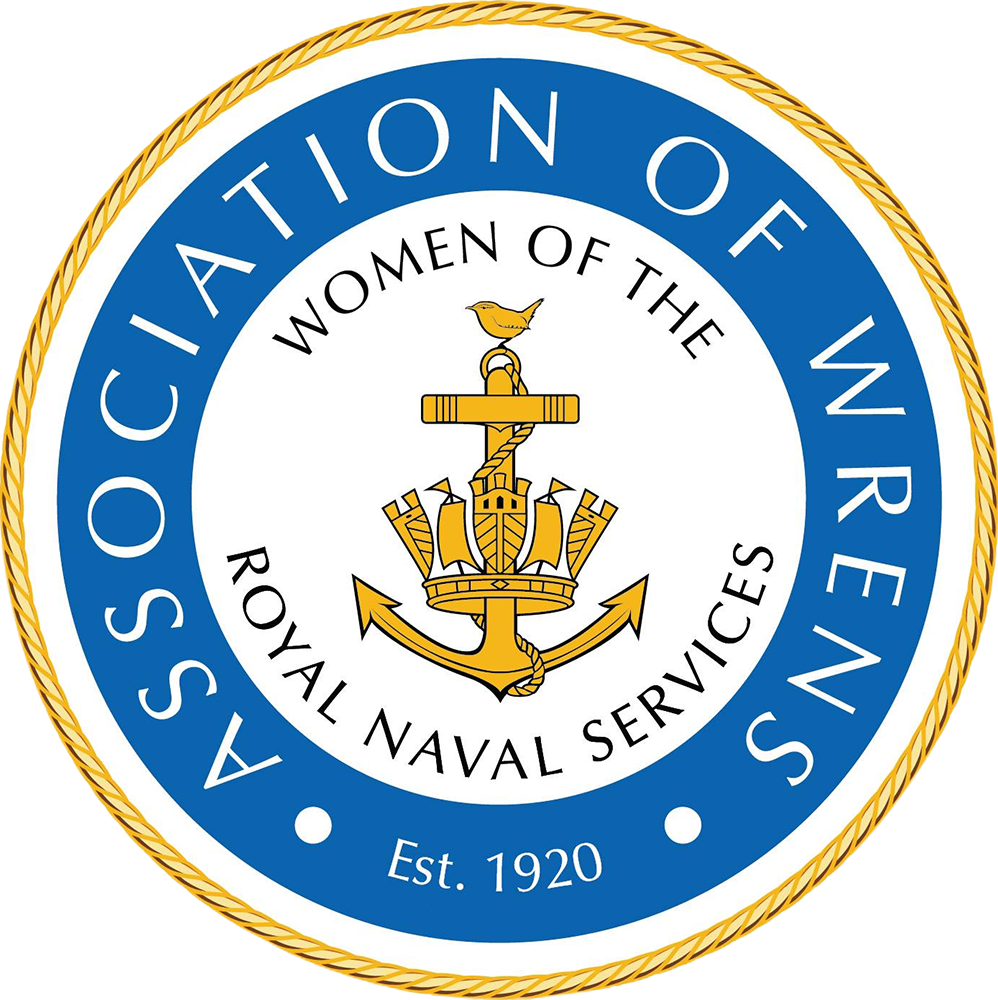Registered Charity No. 257040 • Tel: 02392 725141
Women’s Royal Indian Naval Service established during WW2
Featured image: Female ratings of the Women’s Royal Indian Naval Service (WRINS) at GHQ Delhi, India. June 1945. (Private Collection). Repost from British Empire & Commonwealth Forces in the Far East-SE Asia 1937-1946.
During WW2, the Women’s Royal Indian Naval Service was established, for the first time giving women a role in the navy, although they did not serve on board its ships.
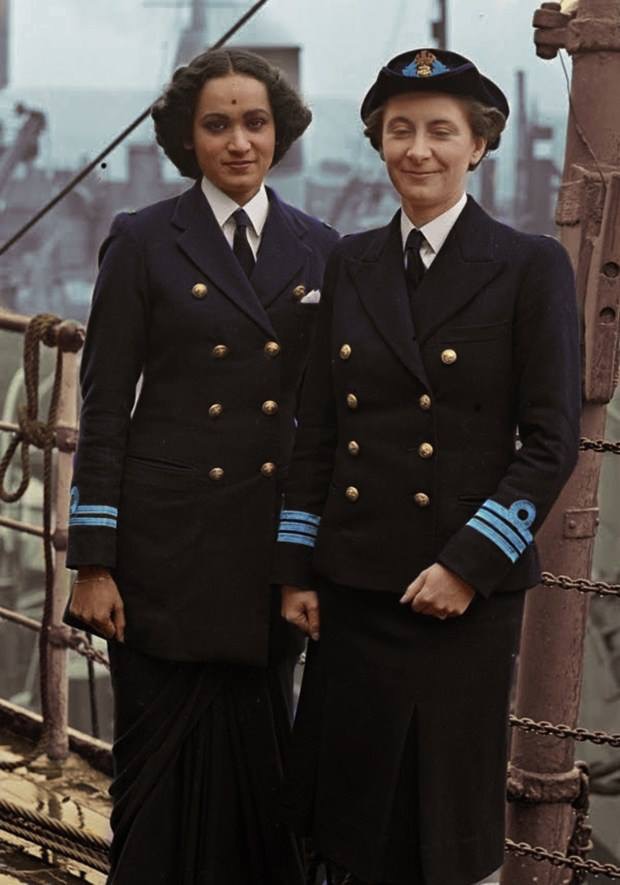
Chief Officer Margaret L Cooper, Deputy Director of the Women’s Royal Indian Naval Service (WRINS), with Second Officer Kalyani Sen, WRINS at Rosyth during their two month study visit to Britain, 3rd June 1945.
The Women’s Royal Indian Naval Service was established as part of the The Royal Indian Navy (RIN) during World War II. Although the women did not serve on board the ships, this did give them a role in the navy. The first Indian service woman who visited the UK was second officer Kalyani Sen. Sen went there to make a comparative study of training and administration in the Women’s Royal Naval Service.
“In India there is still a big prejudice against girls and women working with men…but the women are so keen to get into the Services that they are breaking it down,” she said.
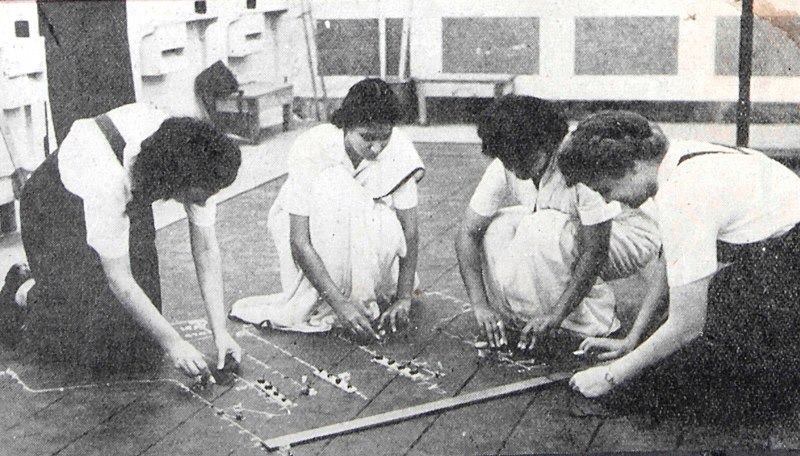
http://nmrnportsmouth.blogspot.com.au/2011/11/india-of-future.html
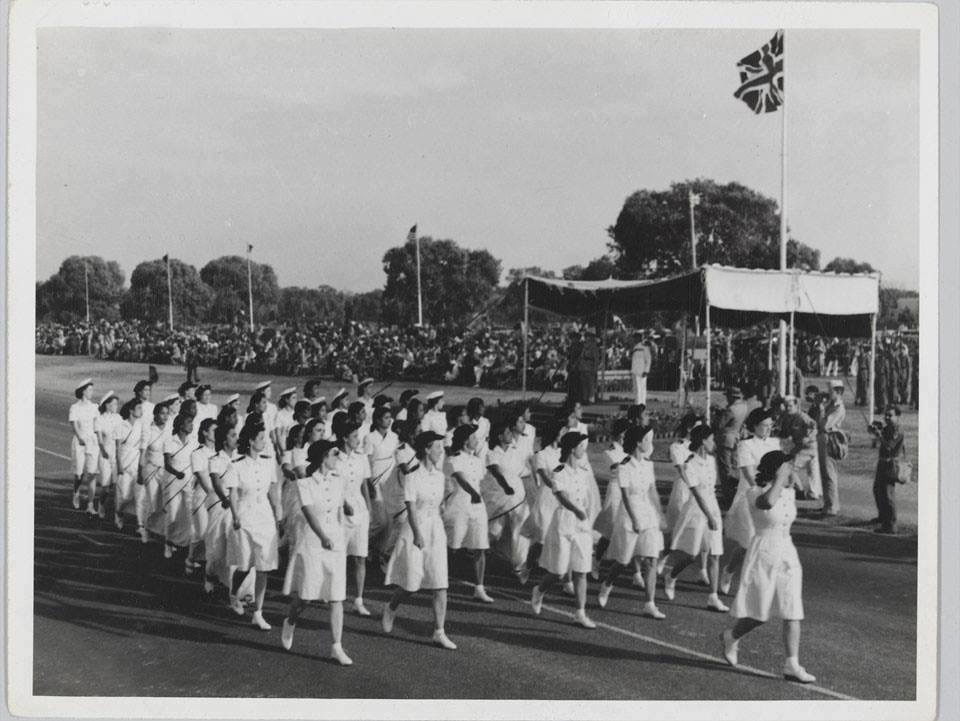
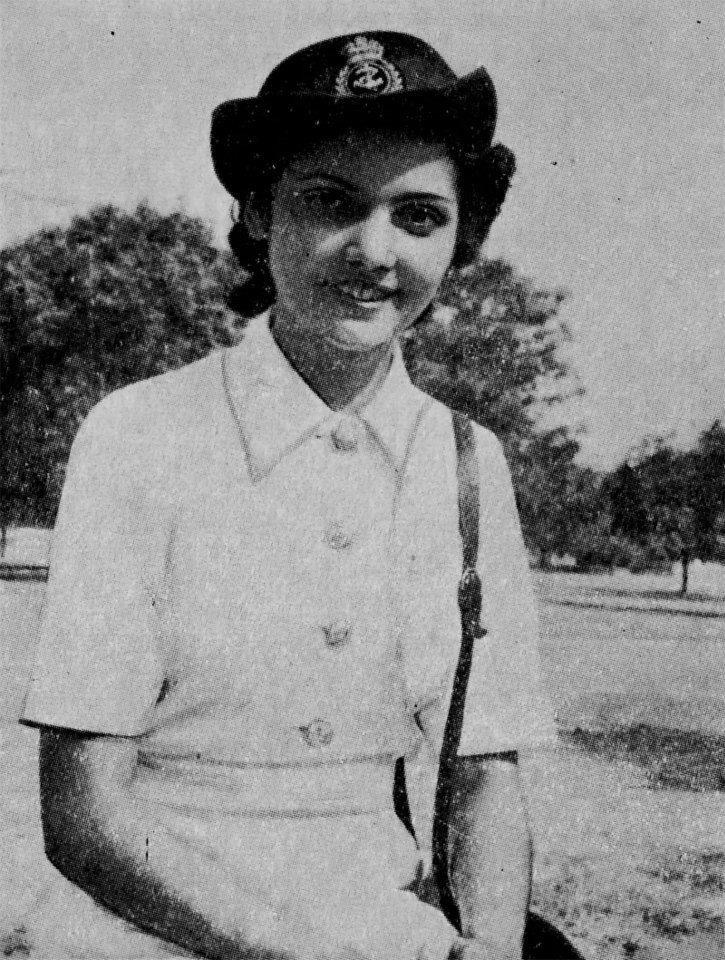
The daughter of Seyed Hafeez Imam, a well-known government official, was at a Catholici boarding school during the war. Being headstrong, independent and stubborn she decided to join the WRINs without telling anyone in her family. Her father found out she wasn’t in school, when her recruiter, who had recognized her and the family name, made her the poster girl for all of India at that time. (Information supplied by Alyn Furlong, her son.).
Association of Wrens
Association of Wrens and the
Women of the Royal Naval Services
Bldg 1/87 Scott Road
HM Naval Base
Portsmouth, PO1 3LU
Registered Charity No. 257040
Support Us
You can help support the work of the Association of Wrens by making a donation.
Basket
© Copyright 2021 Association of Wrens - Privacy Policy Website developed by Foster & Scott
